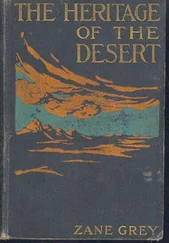Julius Birge - The Awakening of the Desert
Здесь есть возможность читать онлайн «Julius Birge - The Awakening of the Desert» — ознакомительный отрывок электронной книги совершенно бесплатно, а после прочтения отрывка купить полную версию. В некоторых случаях можно слушать аудио, скачать через торрент в формате fb2 и присутствует краткое содержание. Жанр: foreign_language, foreign_antique, foreign_prose, на английском языке. Описание произведения, (предисловие) а так же отзывы посетителей доступны на портале библиотеки ЛибКат.
- Название:The Awakening of the Desert
- Автор:
- Жанр:
- Год:неизвестен
- ISBN:нет данных
- Рейтинг книги:5 / 5. Голосов: 1
-
Избранное:Добавить в избранное
- Отзывы:
-
Ваша оценка:
- 100
- 1
- 2
- 3
- 4
- 5
The Awakening of the Desert: краткое содержание, описание и аннотация
Предлагаем к чтению аннотацию, описание, краткое содержание или предисловие (зависит от того, что написал сам автор книги «The Awakening of the Desert»). Если вы не нашли необходимую информацию о книге — напишите в комментариях, мы постараемся отыскать её.
The Awakening of the Desert — читать онлайн ознакомительный отрывок
Ниже представлен текст книги, разбитый по страницам. Система сохранения места последней прочитанной страницы, позволяет с удобством читать онлайн бесплатно книгу «The Awakening of the Desert», без необходимости каждый раз заново искать на чём Вы остановились. Поставьте закладку, и сможете в любой момент перейти на страницу, на которой закончили чтение.
Интервал:
Закладка:
Julius C. Birge
The Awakening of the Desert
CHAPTER I
A Call to the Wilderness
WILL you join us in a camping trip to the Pacific Coast?" This alluring invitation was addressed to the writer one cold, drizzly night in the early spring of 1866 by Captain Hill Whitmore, one of a party of six men who by prearrangement had gathered round a cheerful wood fire in a village store in Whitewater, Wisconsin.
The regular business of the establishment had ended for the day; the tight wooden shutters had been placed upon the doors and windows of the store as was the custom in those times; and the key was now turned in the lock to prevent intrusions. All the lights had been turned off, except that of a single kerosene lamp, suspended from the ceiling near the stove; the gentle glow revealed within a small arc on either side of the room the lines of shelving filled with bolts of dry goods, but toward the front and the rear of the long room it was lost in the darkness. The conditions were favorable for a quiet, undisturbed discussion of a proposed enterprise, for even Ray, the clerk, after ramming a maple log into the fire, had quietly stretched himself out upon one of the long counters near the stove, resting his head upon a bolt of blue denim.
Tipping back in a big wooden chair against the opposite counter, at the Captain's side, with his feet on the rail by the stove, sat big John Wilson. John had made a trip across the plains with Whitmore the preceding year, and was now arranging to become his partner in a similar venture on a larger scale. Trader and adventurer by instinct, Wilson, as his record had shown, would promptly accept a brickyard or a grocery in exchange for live stock or a farm, and preferred any new enterprise to a business with which he was familiar.
Fred Day, an interesting young man of twenty years, was a consumptive. He and I sat side by side at the front of the stove, while nervous little Paul Beemer, when not pacing back and forth between the counters behind us, sat astride a small chair, resting his arms on its back, and listening with close attention.
Stalwart Dan Trippe sat in a big arm chair near Paul. He had already been informed in a general way that a transcontinental expedition was being planned. Dan also was ever ready to consider any new venture. He had once crossed the plains to Pike's Peak, and had no present vocation. Running his fingers through his curly hair, as was his habit in serious moments, he launched a question toward the opposite side of the stove.
"Well, John, what's the proposition? What's the scheme?"
Dropping his chair forward upon its four legs, and knocking the ashes from his pipe, John proceeded to outline the tentative plan then in mind. Briefly stated, the project was to fit out a wagon train with the view of freighting from the Missouri River to the Coast. In the preceding year the rates for transportation to Salt Lake had been from twenty to thirty cents per pound, affording a fine profit if the train should go through safe.
Hill Whitmore, a vigorous, compactly built man, then in the prime of life, and who since the discovery of gold in California had more than once piloted such trains across the wide stretch of plains and mountains to the Pacific Coast, would be a partner in the enterprise and the Captain of the expedition. We had known him long and well.
An opportunity was now offered for the investment of more capital which, if no mishap should befall the train, would pay 'big money.'
A few young fellows could also accompany the outfit and obtain a great experience at a moderate cost. Being myself a convalescent from a serious attack of typhoid fever, and having temporarily withdrawn from business at the recommendation of physicians, Fred's condition commanded my serious consideration. I gently pulled his coat-sleeve as a signal for him to follow me, and we leisurely sauntered down into the shadows near the front of the store where, backing up against a counter, we were soon seated together on its top. We both knew, without exchanging a word, that we had some interests in common. Ordinarily, he was a genial and affable companion, but we both remained silent then, for we were absorbed in thinking – and doubtless along the same lines. The mere suggestion of the trip at once brought vividly to my mind all the little I then knew of the West. Like all Gaul in the days of Caesar, it seemed in some vague way to be divided into three parts, the plains, the mountains, and the region beyond.
The indefiniteness of the old western maps of the day left much to the imagination of the young student of geography and suggested the idea of something new to be discovered. The great American Desert was represented as extending hundreds of miles along the eastern slope of the mountains. Other deserts were shown in the unoccupied spaces beyond, and so here and there on our maps of the western territories was inserted the name of some Indian tribe which was supposed to lead its wild, nomadic life in the district indicated. A few rivers and mountain peaks which had received the names of early explorers, Great Salt Lake to which the Mormons had been led, and other objects to which had been applied the breezy, not to say blood-curdling, appellations peculiar to the nomenclature of the West, all were perhaps more familiar to the average American schoolboy than were the classic names which have lived through twenty centuries of history. In the imagination of youth, "Smoky Hill Fork," "Devil's Slide," and "Rattlesnake Hills" figured as pretty nearly what such terms naturally suggest. Along the first-mentioned stream – then far away from civilization – the soft haze and smoke of an ideal Indian summer was supposed to rest perpetually, and it was believed that in days of long ago, weird demons were really wont to disport themselves on the mountain slope called Devil's Slide. The far West seemed to be a mystic land always and everywhere wooing to interesting adventure.
"As geographers in Afric's maps
With savage pictures fill their gaps,"
"Do you think that Ben would go?" asked Fred in an earnest tone.
"That's a bright thought, Fred. With Ben, we would be a harmonious triumvirate; but let's hear more of the program." So we returned to our seats by the stove.
Whitmore was outlining some of the details and indicating the provisions which it would be necessary to make, in view of the fact that no railroad had as yet been laid even across Iowa, much less between the Missouri and the Pacific.
"Now boys, you must understand that we're cutting loose from all established settlements. There won't be any stores to drop into to buy anything that you have forgotten to bring along. Anybody that wants lemonade will have to bring along his lemons and his squeezer. After we get beyond the Missouri River you will find no white peoples' homes until you strike the Mormon settlement in Utah, so we'll have to take along enough grub to feed us for several months; – of course we ought to kill some game on the way, which will help out. Our stock must live wholly upon such pasturage as can be found along the way. The men must also be well armed with rifles; wagons must be built; and the cattle must be purchased. There is a lot to do to get ready, and we must start in on it at once."
During the preceding year, as was well known, the Indians in the West had been unusually hostile. Many parties of freighters, among them Whitmore's train, had been attacked, and a great number of travelers had been massacred. That year and the one to be described, are still mentioned in the annals of the West, as "the bloody years on the plains." This state of affairs was fully considered and discussed, not solely from the standpoint of personal safety, but also with reference to the success of the enterprise.
Читать дальшеИнтервал:
Закладка:
Похожие книги на «The Awakening of the Desert»
Представляем Вашему вниманию похожие книги на «The Awakening of the Desert» списком для выбора. Мы отобрали схожую по названию и смыслу литературу в надежде предоставить читателям больше вариантов отыскать новые, интересные, ещё непрочитанные произведения.
Обсуждение, отзывы о книге «The Awakening of the Desert» и просто собственные мнения читателей. Оставьте ваши комментарии, напишите, что Вы думаете о произведении, его смысле или главных героях. Укажите что конкретно понравилось, а что нет, и почему Вы так считаете.











